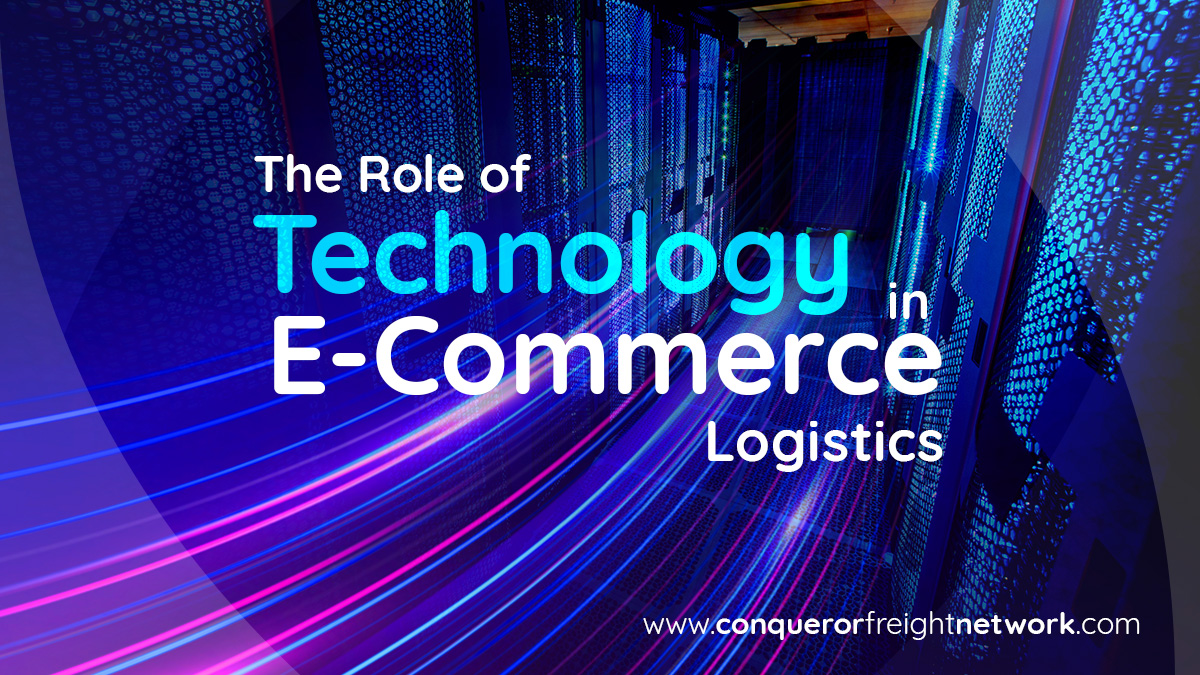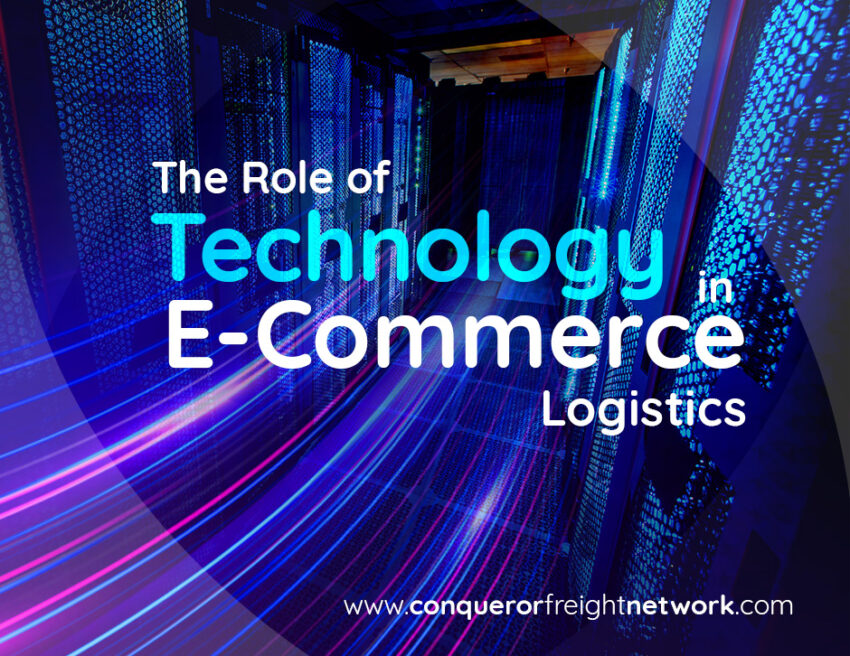Imagine a world where your e-commerce shipment is automatically assigned the fastest and most cost-effective route, customs clearance is done in real-time, and customers can track their package down to the second—all without human intervention. Sounds futuristic? Not anymore. The Ecommerce and the international logistics industry is undergoing a radical transformation, thanks to emerging technologies like Artificial Intelligence (AI), blockchain, and the Internet of Things (IoT). These advancements are not just improving efficiency; they are redefining how freight forwarders operate in the digital age.
For logistics professionals, staying ahead of these trends is no longer optional—it’s essential. In this blog, we’ll explore the cutting-edge technologies shaping the future of e-commerce logistics and how freight forwarders can leverage them to enhance transparency, speed, and reliability.

AI’s Role in the Ecommerce and the International Logistics Industry
AI and machine learning are revolutionizing supply chain management by making logistics operations smarter and more predictive. Freight forwarders can use AI to:
- Optimize routes and reduce shipping times: AI-powered route optimization tools analyze traffic, weather conditions, and real-time demand to select the most efficient delivery paths.
- Automate warehouse operations: AI-driven robotics and automation speed up sorting, packing, and inventory management.
- Enhance demand forecasting: AI predicts fluctuations in demand, helping businesses adjust inventory levels accordingly and prevent stock shortages or overages.
- Improve customer service: AI-powered chatbots provide instant tracking updates and resolve queries, reducing the burden on human customer service teams.
Companies like Amazon and Alibaba already rely on AI-driven logistics solutions to handle millions of orders daily, setting the standard for the industry.
Blockchain: Boosting Transparency and Security
How Blockchain is Transforming the Ecommerce and Logistics Industry
One of the biggest challenges in logistics is supply chain transparency. Freight forwarders must ensure that shipments move through various checkpoints without unnecessary delays or fraud risks. Blockchain technology offers a solution by creating a secure and immutable ledger of transactions.
Benefits of blockchain in e-commerce logistics:
- Enhanced traceability: Every transaction and movement of goods is recorded in real time, reducing fraud and improving shipment visibility.
- Smart contracts: These self-executing contracts automatically process payments and document handovers, eliminating paperwork and reducing processing times.
- Secure data sharing: Freight forwarders, customs agencies, and e-commerce platforms can share data securely without the risk of tampering.
Blockchain ensures that every participant in the supply chain has access to the same verified data, preventing disputes and enhancing trust between stakeholders.
Internet of Things (IoT): Real-Time Visibility and Monitoring
IoT devices, such as GPS trackers, RFID tags, and smart sensors, are making real-time shipment monitoring possible. Freight forwarders can use IoT to:
- Track shipments in real-time: GPS-enabled devices provide precise location tracking for shipments, reducing the chances of lost or stolen goods.
- Monitor temperature-sensitive goods: Sensors can detect changes in temperature, humidity, and light exposure, ensuring perishable goods remain in optimal conditions.
- Prevent delays and damages: IoT alerts logistics managers if a shipment is at risk of delay or damage, allowing for quick intervention.
For industries dealing with pharmaceuticals, food, and high-value electronics, IoT is a game-changer, providing greater security and reliability in logistics operations.
Robotics and Automation: The Future of Warehousing
Warehousing is a crucial part of e-commerce logistics, and technology is making it faster and more efficient. Automation in warehouses includes:
- Autonomous mobile robots (AMRs): Used for sorting, picking, and transporting goods, reducing manual labor.
- Drones for inventory management: Drones scan barcodes and track inventory levels, minimizing errors.
- Automated sorting systems: These ensure faster processing of e-commerce orders, speeding up last-mile delivery.
By investing in robotics and automation, freight forwarders can significantly cut costs and improve order fulfillment speed.
Big Data Analytics: Making Smarter Decisions
Data is the new oil in logistics. With advanced analytics, freight forwarders can:
- Identify inefficiencies in the supply chain: Pinpoint bottlenecks and optimize workflows.
- Predict demand and adjust capacity: Avoid supply chain disruptions by anticipating demand surges.
- Enhance last-mile delivery: Analyze delivery patterns to reduce failed deliveries and improve customer satisfaction.
By using big data analytics, the international logistics industry can turn raw data into actionable insights, improving overall supply chain efficiency.
Cloud Computing: Seamless Collaboration and Integration
Cloud-based logistics platforms allow seamless communication between freight forwarders, e-commerce businesses, and supply chain partners. Benefits include:
- Real-time data access: Teams can collaborate on a shared platform, reducing miscommunication.
- Scalability: Cloud solutions grow with business needs, providing flexibility.
- Cost savings: Reduces the need for physical IT infrastructure.
Cloud computing ensures that logistics operations remain agile and responsive to market demands.
Conclusion
The Ecommerce and the international logistics industry is evolving at an unprecedented pace, and technology is at the heart of this transformation. AI, blockchain, IoT, robotics, big data, and cloud computing are redefining how freight forwarders operate, offering new opportunities for efficiency and transparency.
To stay competitive, freight forwarders must embrace these technologies, streamline operations, and enhance customer experiences. The future of e-commerce logistics is here—are you ready to adapt?


